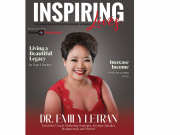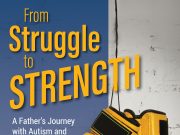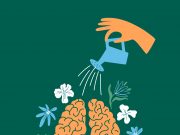The Pandemic has taught us so many things, mainly how to deal with loss. We all were impacted by COVID-19. Some more than others, but no one got out unscathed. Some of us lost family members. Others got sick. Some lost jobs. Others lost businesses. Our children lost educational opportunities. We all lost the opportunity to see family members and friends. Along with these huge losses there was also a fear of not having enough. We were feeling deprived that we weren’t going to get enough: toilet paper, food, masks or COVID-19 tests.
Although there were many losses during this time there were also many valuable lessons we gained. For example, I realized during this time that I could do with less material stuff. As someone who spent years engaging in “retail therapy” in order to soothe my own anxiety, I learned the value of living more simply. I don’t want to imply that I’m completely cured, of course. I will never be a minimalist. But I have recognized the wasteful nature of the amount of shopping I used to do. As a culture for many years we have all been affected by the consumer industries’ push to have the right clothes, cars, and phones. At the end of the day that is not what matters, instead it is spending time with the people we care about. During the Pandemic, this period of buying less taught us that the most important things in life aren’t things, instead they are relationships.
We are more aware of our mental health now and steps to keep that going
One of the best things about this time from a mental health perspective is that going to therapy has been destigmatized. For example, there have been TikTok videos and Instagram posts about the importance of seeking mental health treatment and even famous pop stars like Taylor Swift and Ariana Grande have spoken up about how helpful therapy has been for them. Famous musician, Harry Styles recently made a shout out to his therapist who was in the audience at one of his concerts. When celebrities promote the value of therapy it serves to destigmatize the shame of needing help. On another note, the fact that therapists were considered essential workers impacted me in such a huge way. I felt appreciated and acknowledged for how hard I was working during the Pandemic. The valuing of mental health care workers as well as the destigmatizing of therapy both served to increase people’s willingness to seek treatment. Unfortunately, the intensity of this need for therapy has created a mental health crisis as therapists are finding it difficult to keep up with people’s need for counseling. It is essential that we train more therapists, and advocate for mental health workers to practice self-care by taking time off so that they don’t burn out from the intensity of everyone’s needs.
We’ve reevaluated our priorities
During the time of the Quarantine not only did we buy less things, we also limited spending time socializing with others. The main benefit of this was that we had an opportunity to take stock of the relationships in our lives and let go of the ones that did not bring us pleasure. We realized who were the people who provided us joy and we missed seeing them, as well as the people who caused us aggravation and we were relieved to let these relationships go. As the Pandemic ended, we had the opportunity to set boundaries and spend more time around those people who built us up by providing positive support and to disengage from those energy-sucking relationships in our lives. Similarly, time away from work gave people some perspective about what they liked and didn’t like from their jobs. Some people took this time as an opportunity to look for other employment options. Others went back to school to pursue another profession. The time quarantining with our families also gave us an opportunity to see our relationships up close and personal. For some that meant realigning perspectives and realizing the importance of investing in our marriages and families. Others realized the relationship difficulties that have always been there and decided to leave their marriages by initiating a divorce. This time at home allowed us to take stock of our lives, the good and the bad aspects in order to figure out what was important for the future.
Although it’s been an extremely difficult period, this time of Pandemic has made us more aware and more reflective about our lives and of those around us.
Dr. Alyson Nerenberg is a licensed psychologist and the author of No Perfect Love: Shattering the Illusion of Flawless Relationships





































